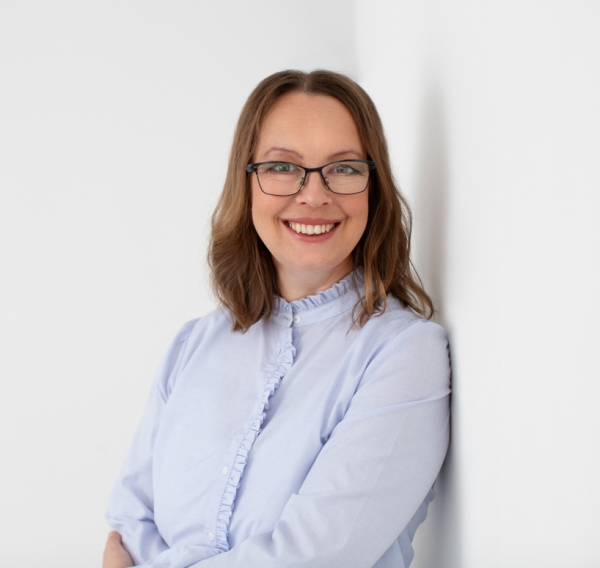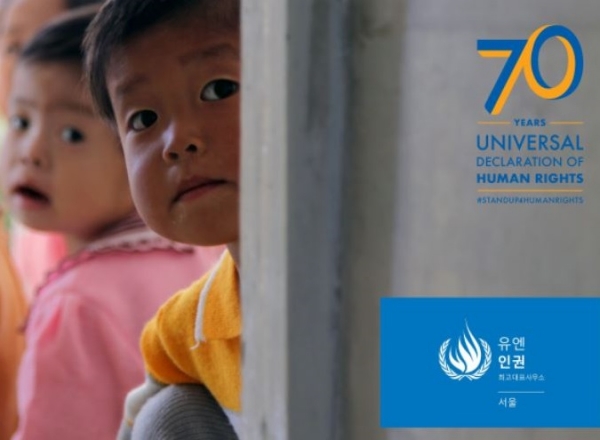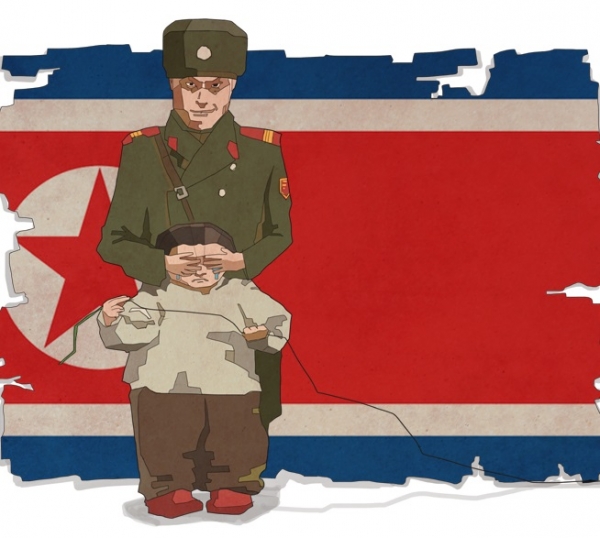
[휴먼에이드포스트] 우리나라는 지구촌 유일의 분단국가이다. 한국은 민주주의와 시장경제를 바탕으로, '민주인권국가'를 이루어냈지만 북한은 여전히 세계에서 가장 억압적인 국가로 인식되고 있다. 북한에서는 필수불가결한 기본권인 표현의 자유, 집회 결사의 자유, 종교의 자유 등은 존재할 수 없다. 또한 모든 형태의 반정부적 조직이나, 언론, 노동조합을 금한다. 공포 정치 및 통제 유지 수단을 위해 북한은 반인류적 만행을 저지르고 있다는 것은 공공연한 사실이다.

조선민주주의인민공화국 인권조사위원회는 약 1년간의 면밀한 조사 끝에 조사 결과와 권고사항을 담은 보고서를 유엔인권이사회에 제출하고 북한의 심각한 인권 문제와 관련, 북한 인권 상황을 감시하고 증거를 기록할 목적으로 북한 인권현장사무소를 제안했다. 이에 따라 2014년 3월 유엔 인권이사회가 설치를 승인했다. 유엔인권사무소 본부가 있는 스위스 제네바 혹은 태국 방콕 등 제3국에 설치하는 방안이 논의됐지만, 직접적 인권 피해자인 탈북자들과 북한인권 운동을 하는 민간단체가 가장 많은 한국을 최적의 입지로 보고 유엔 인권최고대표사무소 서울(OHCHR, 서울유엔인권사무소)와 정부는 교환 각서를 맺고 2015년 6월 서울 종로구 글로벌센터에 개소했다.
유엔 인권이사회에 제출된 방북 보고서에 따르면 북한의 장애인 인권 수준은 매우 열악한 것으로 전해졌다. 공항, 학교, 과학기술센터 등의 대표적인 공공시설조차 장애인의 접근이 어렵고 장애인을 위한 편의 시설은 찾기 힘들었다. 장애인이라는 사회적 인식 자체가 부정적이라는 내용이 담겼다. 특히 장애인은 국가로부터 보호를 받지 못하고 가족의 부양으로 생활하거나 구걸을 통해 생계유지를 하는 것으로 전해졌다. 얼마나 많은 권리를 박탈당한 채 불우한 삶을 살고 있는지 서울유엔인권사무소 시네 폴센(Signe Paulsen) 대표와 자세한 이야기를 나누었다. 인터뷰는 서면질의를 통해 이루어졌다.
Q. 우리나라는 지구촌 유일의 분단국가이니만큼, 서울유엔인권사무소의 역할이 클 것이라 생각된다. 이곳에서 하는 주요한 업무는 무엇인가.
A. 서울유엔인권사무소는 북한에서 반인륜적 범죄가 발생하고 행해졌다는 사실을 밝혀낸 전문가(comission of inquiry)의 조사를 뒷받침하기 위해 2015년 서울에 개소하였다. 이곳의 주요 목적은 북한의 인권 상황을 감시하고 관련 정보를 문서로 기록하는 역할을 담당한다. 또한, 정부, 시민사회 단체 및 기타 행위자에게 인식 제고와 옹호를 통해 실상황을 파악할 수 있도록 한다. 이 직무를 수행하기 위해 우리 직원들은 북한에서 한국으로 입국한 탈북자들을 인터뷰하고, 이탈주민 심리상담, 국군포로 및 납북자 사후관리 등의 트레이닝 교육을 제공하는 것은 물론 시민사회단체와 긴밀히 협력해 북한에 관련된 다양한 인권 문제를 담은 보고서를 발간한다.

Q. 서울유엔인권사무소에서 생각하는 북한 인권 문제 중 가장 심각한 부분은 무엇이라고 생각하는지 알고싶다.
A. 북한에는 매우 심각한 인권침해가 많으며, 연계성을 보이는 인권 침해 사례가 자주 있다.
예를 들어, 많은 사람들이 북한의 정치범수용소의 운영체계에 대해 들어봤을 텐데, 상상 이상으로 더 열악하고 끔찍한 구금 등이 자행되고 있다. 자의적 구금 및 고문, 사형, 공개처형, 감옥내 영아살해, 노동캠프에 보내는 형벌 등 조직화된 시스템으로 인권침해 행위가 이뤄진다는 지표들이 있다.
북한 인구 다수가 인권침해를 당하는 사례 또한 많다. 사람들은 거주지를 마음대로 옮길 수 없으며, 거래도 자유롭게 하지 못한다. 북한 주민들은 제한된 정보에만 접근할 수 있으며, 그들이 겪는 고난과 이를 타개하기 위한 필요 사항들에 대하여 서로 자유롭게 나누고 공유할 수 없다. 정부에 대한 비판 혹은 의문점을 제기할 시 수감 등의 잔혹한 처벌이 기다릴 뿐이다.
그리고 자신과 가족을 위해 충분한 생계를 유지할 수 있을 만큼의 임금을 지불하지 않는 직장에 강제 배정되기도 한다. 그들에게 있어 삶이란 열악한 환경에서 '최소한으로 살아남는 것'뿐이다.
국가적 정보 차단으로 인해 북한 국민들은 정보가 부족하며, 문제점을 개선 시킬 변화의 필요성에 대해 자유로이 말할 수 없다. 그들이 국가를 의심하거나 비판할 경우 수용소 수감과 같은 중형에 처해지는 것을 두려워하기 때문에 이의제기나 혁신이 불가능하다. 이와 같은 상황에 놓여 있기 때문에 많은 사람들이 어려운 환경에서 벗어나지 못하고 있다고 말할 수 있다.
Q. 최근 북한 시설에서 여성 성폭력 등 인권침해가 자행되고 있다고 지적하셨는데, 이를 해결할 복안은 무엇인가 궁금하다.
A. 문제를 해결할 복안은 없을지도 모른다. 수용소 내 성폭력 문제는 인권 부재에 따른 결과라고 볼 수 있다. 북한 여성은 남성이 받는 인권 침해는 물론 여러 가지 성적 학대 및 성별에 근거한 인권 유린으로 고통받고 있다.
만약 억류자들이 여성이고, 수용소 간수들이 모두 남성인 상황이라면, 이 억류 여성들을 위험에 빠뜨리는 것이다. 경비에 대한 실효성 있는 감시체계가 없고, 성폭행 피해자가 가해자를 처벌하도록 민원을 제기할 가능성도 없기 때문에 더욱 그렇다. 피해자들을 통해서 성 관련 범죄 정보를 얻는 것은 매우 어렵다. 자신들이 입었던 피해와 수치심을 말로 설명하기 고통스러워하기 때문이다. 국제사회가 ‘방콕룰(유엔 여성 수감자 처우 규정에 대한 비호감 조치)’과 같은 가이드라인이나, ‘모든 사람의 보호를 위한 원칙록’ 등과 같은 지침을 개발한 것도 이 때문이다.
Q. 북한의 아동노동은 어느 정도의 수준인지. 특히 여성아동의 노동수위가 더 심하다고 하는데, 이를 해결하기 위한 국제적 공조나 노력이 가능한지 궁금하다.
A. 북한에서 온 사람들을 인터뷰할 때, 북한에서 일하는 노동자들이 고용 국제 기준에 따른 대우를 받지 못하는 사례들에 대해 종종 듣곤 한다. 앞서 말했듯, 그들은 부적절한 임금을 받으면서 장시간 일하거나 직업 선택의 자유는 없을 뿐더러, 능력이 아닌 배경이나 성별에 따른 차별을 받는 것으로 알고 있다.
북한 정부는 기본적인 국제 노동 기준에 동의하지 않았지만, 아동 권리에 관한 협약에 관해서는 비준했다. 특히 농촌 지역의 아동노동에 관해 말하자면, 북한 아이들은 종종 비공식 분야에서 일해야 한다는 것이다. 심지어 경제적인 이유로 학교를 중퇴하기도 한다. 학교는 무상교육을 제공할지라도, 학생들은 그에 상응하는 땔감이나 토끼 가죽과 같은 물품들을 학교에 기부 해야하는 경우가 많기 때문이다. 또한, 어린 학생들이 교육이라는 명분하에 육체노동에 동원될 수도 있다는 보고도 받았다. 남학생, 여학생 구분 없이 모두에게 말이다.
Q. 북한의 장애인 혹은 장애인 아이들에 대한 인권복지는 어느 정도인지.
A. 장애인 인프라 관련 북한 당국은 "상황 개선을 위해 노력하고 있고 긍정적인 스텝을 취하고 있다"고 말했다.
북한은 아동권리협약(CRC) 및 여성차별철폐협약(CEDAW), 장애인권리협약, 시민 및 정치적 권리에 관한 규약, 경제적, 사회적 및 문화적 권리에 관한 국제 규약, 유엔 헌장 등 여러 인권 조약에 서명하고 비준한 바 있기에, 여러 유엔 기관 및 유엔 조약 담당 기구와 협력하며 이행할 의무가 있다.
더불어 지난 2017년에는 유엔장애인인권 특별보고관을 초청했다. 이는 주제별 유엔보고관의 방문을 허가한 첫 사례였다. 매우 의미 있는 시도였지만, 이것이 북한 내 장애인의 생활 향상이라는 측면에서 얼마나 큰 영향을 미쳤는지가 중요한데, 이는 알 수가 없다.
북한이 가진 가장 큰 문제는 Firsthand information(직접 보고 얻는 정보)이 없다는 것이다. 장애인의 권리를 돕고 장려하는 국가 기구인 ‘장애인보호연맹’이 있음에도 연대와 표현의 자유를 제한하는 국가인 이상 장애인들이 시민사회 단체를 구성하고 권리를 주장할 가능성은 거의 없다. 그럼에도 불구하고, 이 부분에 대해서는 개선 가능성이 있을 수도 있기 때문에 북한 정부와 계속 교감하는 것이 유용하다.
Q. 유엔 인권최고대표 한국사무소의 가장 큰 현안(과제)은 무엇인가.
A. 앞서 언급했던 점 외에도 우리는 현재 코로나19 사태가 북한에 어떤 영향을 미칠지 우려하고 있다. 대부분의 북한 국민들은 이미 영양실조나 결핵과 같은 질병으로 면역력이 약해진 상태이다. 북한의 의료 체계는 제한되어 있고, 극빈층은 약물치료를 받지 못할 수도 있다.
특히, 수감자들의 전염도 우려가 된다. 북한의 수용소는 위생상태가 열악하고, 비좁은 환경에 수감자들을 수용시키기 때문이다. 여전히 북한은 코로나19 사태에 관련된 사례를 보고하지 않고 있으며, 정보교류에 대한 제한이 큰 국가이다 보니, 코로나 진척 상황의 전체 범위는 알 수가 없다. 그동안 북한은 이웃 국가와의 교역과 지원으로 연명해왔는데, 코로나19 사태에 따른 경제적인 교역 중단과 후원이 끊기면 자신들의 경제 상황을 악화시킬지 모른다는 우려로 인해 코로나 확진자 통계를 발표하지 않을 수도 있다.
취재_제임스홍 본부장/번역 및 정리_허지선 기자
United Nations Human Rights Of Office The High Commissioner Seoul- Signe Paulsen
Q. The United Nations Human Rights Office Seoul may play larger factor in Korea. What is The United Nations Human Rights Office Seoul’s principal areas of work?
A. The office in Seoul opened in 2015, to follow up on an investigation by experts (known as a "commission of inquiry") that had found that crimes against humanity had been and were being committed in North Korea. OHCHR(Seoul)'s mandated role is to monitor and document the human rights situation in North Korea; to build capacity on human rights for governments, civil society organizations and other actors; and to maintain visibility of the situation through advocacy and awareness-raising. To carry out this mandate, staff conduct interviews escapees who have recently arrived in South Korea from North Korea, we conduct training sessions, work closely with civil society organizations, and publish reports on different human rights topics related to North Korea.
Q. What do you think is the most serious problem of North Korean human rights?
A. There are many serious human rights violations in North Korea, and the violations are often connected to each other. For example, many people have heard about the political prison system in North Korea, and many serious violations that happen in these prisons. There are indications that human right violations happen on a systematic scale inside these prisons. But there are also other areas that affect a large part of the population. People are not able to move or trade freely, or are assigned state jobs that do not pay enough for them to provide an adequate living for themselves and their families. So they survive on the bare minimum and live in poor conditions. In North Korea, people also lack information, and are unable to speak freely about challenges facing them and the need for change. This creates a situation where people are in many cases stuck in very difficult situations, but cannot challenge this because they fear severe punishment, such as imprisonment, if they question or criticize the state.
Q. Recently you have indicated rape and sexual abuse in facilities in North Korea. what do you think is the preconceived plan for these problems?
A. There may not be a preconceived plan. Such abuse may rather a consequence of the absence of human rights more broadly in these facilities. If you have a situation where the detainees are women, and all the guards are men, you put these women at risk. This is even more the case because there is no effective system of oversight of guards, and no ;possibilities for victims to file complaints so that perpetrators are punished. It is often challenging to get information about these violations, as victims feel ashamed to talk about what happened to them. This is why the international community have developed guidelines, such as the Bangkok Rules and the Body of Principles for the protection of all persons under any form of detention or imprisonment, which outline what should be done to protect detainees.
Q. How serious is the child labor in North Korea?
And it is reported that the labor intensity of female children are comparatively higher, would there be any specific concerted international effort to solve this problem?
A. When interviewing persons from North Korea, we often hear about cases where workers are not treated in accordance with international standards - they may be forced to work for long hours with inadequate pay; they may not be free to choose their own employment; and they may face discrimination based on their background or gender for example. North Korea has not ratified basic international labour standards. However, it has ratified the Convention on the Rights of the Child. In terms of child labour, especially in rural areas, children are often required to work in the informal sector. They may drop out of school for financial reasons. Even though school is free, students are in many cases required to bring goods such as firewood or rabbit-skins to contribute to school. And there are also reports that students may also be mobilized for manual labour in connection with their education. This is the case for both girls and boys.
Q. What is the current situation/environment of Human Rights and Welfare of people with disabilities and children in North Korea?
A. In terms of persons with disabilities, this is one area where the North Korean Government has said that it is trying to improve the situation, and it has taken some positive steps. In December 2016, North Korea ratified the Convention on the Rights of Persons with Disabilities. In May 2017, the Special Rapporteur on the situation of persons with disabilities visited the country, on the invitation of the North Korean Government. The Government itself has made commitments in international forums to improve the situation. These steps are very welcome. However, it is not clear how much this has had an impact in terms of improving the lives of persons with disabilities in North Korea. One particular problem in North Korea is the lack of first hand information. There is a state organization, Korean Federation for the Protection of the Disabled, which provides assistance and promotes the rights of persons with disabilities. But because of restrictions on the right to freedom of expression and association, there is almost no possibility for persons with disabilities to themselves form civil society organizations and claim their full range of rights. Nevertheless, it is useful to continue to engage with the North Korean Government in this area, as there may be possibilities for improving the situation.
Q. What is the most pressing current concerns of the United Nations Human Rights Office Seoul?
A. In addition to the points I mentioned earlier, we are currently concerned about how the Covid-19 pandemic may be impacting North Korea. Many people are already weak, from malnutrition or other diseases such as tuberculosis. The health care system is limited, and the poorest may not have access to medication. There is particular concern in prisons and detention facilities where detainees are often held in cramped conditions and where sanitation is poor. So far, the Government has not reported any cases of COVID-19, and restrictions on information makes it difficult to know the full scope of the situation. There may also be other effects, such as an impact on trade with neighbouring countries which may worsen the economic situation of ordinary people who are already struggling to meet basic needs.

